John Box CEcol CEnv FCIEEM(rtd.) (Chair)
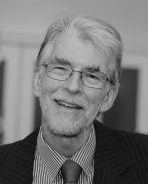 CIEEM challenged John at the start of 2019 to write about the climate emergency in a blog piece that was launched in September. The research and the writing of the blog were just what he needed to get going. John used the words from the blog to get local organisations in Shropshire to set 2030 dates for zero carbon including his local parish council, Telford & Wrekin, the Shropshire Wildlife Trust and the Severn Gorge Countryside Trust. He is now in contact with the BES, the Linnean Society and the UK Urban Ecology Forum to influence their actions.
CIEEM challenged John at the start of 2019 to write about the climate emergency in a blog piece that was launched in September. The research and the writing of the blog were just what he needed to get going. John used the words from the blog to get local organisations in Shropshire to set 2030 dates for zero carbon including his local parish council, Telford & Wrekin, the Shropshire Wildlife Trust and the Severn Gorge Countryside Trust. He is now in contact with the BES, the Linnean Society and the UK Urban Ecology Forum to influence their actions.
Penny Anderson CEcol FCIEEM(rtd.)
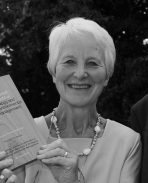 Penny is a CIEEM Fellow who, in 2015, was awarded the CIEEM Medal for her outstanding, lifelong contribution to promoting high standards of ecological consultancy and habitat management. Recently, she has defended a peatland restoration strategy at Public Inquiry in Northern Ireland to restore over 750ha of blanket bog that has been heavily drained, overgrazed and planted with conifers. She has also promoted carbon sequestration in flower-rich grasslands at the recent ERHC Special Interest Group conference. She has mapped appropriate areas for tree planting in parts of the Dark Peak moorlands for the National Trust as part of her voluntary effort.
Penny is a CIEEM Fellow who, in 2015, was awarded the CIEEM Medal for her outstanding, lifelong contribution to promoting high standards of ecological consultancy and habitat management. Recently, she has defended a peatland restoration strategy at Public Inquiry in Northern Ireland to restore over 750ha of blanket bog that has been heavily drained, overgrazed and planted with conifers. She has also promoted carbon sequestration in flower-rich grasslands at the recent ERHC Special Interest Group conference. She has mapped appropriate areas for tree planting in parts of the Dark Peak moorlands for the National Trust as part of her voluntary effort.
Morgan Taylor CEnv MCIEEM

Morgan is a director at Greengage where he leads the Ecology team. Morgan has developed and supported delivery of biodiversity/climate resilience related corporate policy for a number of major land owners and developers which contributed to him being awarded the CIEEM Member’s Award in 2018. Morgan’s work aims to bring all stakeholders on board with innovative corporate aspirations that incorporate wider ecosystem services and nature-based solutions. His team recently challenged themselves to determine the carbon footprint of an Environmental Impact Assessment, and he hopes to challenge other ecologists in a similar way.
Tamsin Morris CEcol CEnv MCIEEM
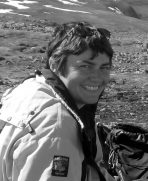 In the last 12 months, Tamsin has worked with Scottish Environment Link and WWF to prepare a report looking at the impacts of climate change on Scottish biodiversity. Raising awareness of the risks to some of Scotland’s most iconic species is something which she hopes will spur our politicians to set and deliver ambitious carbon reduction targets. She hopes it also encourages us all to consider how we as ecologists can implement some of the solutions to the biodiversity crisis, such as increasing habitat connectivity, reducing over-grazing and re-wilding our landscapes.
In the last 12 months, Tamsin has worked with Scottish Environment Link and WWF to prepare a report looking at the impacts of climate change on Scottish biodiversity. Raising awareness of the risks to some of Scotland’s most iconic species is something which she hopes will spur our politicians to set and deliver ambitious carbon reduction targets. She hopes it also encourages us all to consider how we as ecologists can implement some of the solutions to the biodiversity crisis, such as increasing habitat connectivity, reducing over-grazing and re-wilding our landscapes.
Jean Hamilton MCIEEM
 Jean Hamilton MCIEEM is a professional ecologist with over 12 years’ experience in environmental consultancy and has worked on a wide range of projects in both Ireland and the UK, including infrastructure, flood relief schemes and renewable energy developments. Jean has a particular interest in natural resource management in upland areas, and nature-based solutions for climate change mitigation and adaptation.
Jean Hamilton MCIEEM is a professional ecologist with over 12 years’ experience in environmental consultancy and has worked on a wide range of projects in both Ireland and the UK, including infrastructure, flood relief schemes and renewable energy developments. Jean has a particular interest in natural resource management in upland areas, and nature-based solutions for climate change mitigation and adaptation.
Diana Pound CEnv FCIEEM
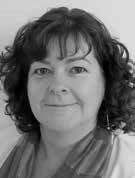 Diana has a background in protected area management on land and sea and 25 years’ experience of managing, designing and facilitating multi-stakeholder Consensus Building and Stakeholder Dialogue working at local, national, international and global levels, on a range of nature and climate related topics. Since setting up Dialogue Matters she has designed and facilitated over 120 processes and worked in 28 countries. She also carries out participatory research and provides advice to a wide range of organisations including Governments and International Bodies. Her work has won multiple awards and she was personally given the IUCN CEC Award for Excellence in West Europe in 2019 and second/highly commended in the highly prestigious UK Professional Environmentalist of the Year Award.
Diana has a background in protected area management on land and sea and 25 years’ experience of managing, designing and facilitating multi-stakeholder Consensus Building and Stakeholder Dialogue working at local, national, international and global levels, on a range of nature and climate related topics. Since setting up Dialogue Matters she has designed and facilitated over 120 processes and worked in 28 countries. She also carries out participatory research and provides advice to a wide range of organisations including Governments and International Bodies. Her work has won multiple awards and she was personally given the IUCN CEC Award for Excellence in West Europe in 2019 and second/highly commended in the highly prestigious UK Professional Environmentalist of the Year Award.
Ella Dangerfield
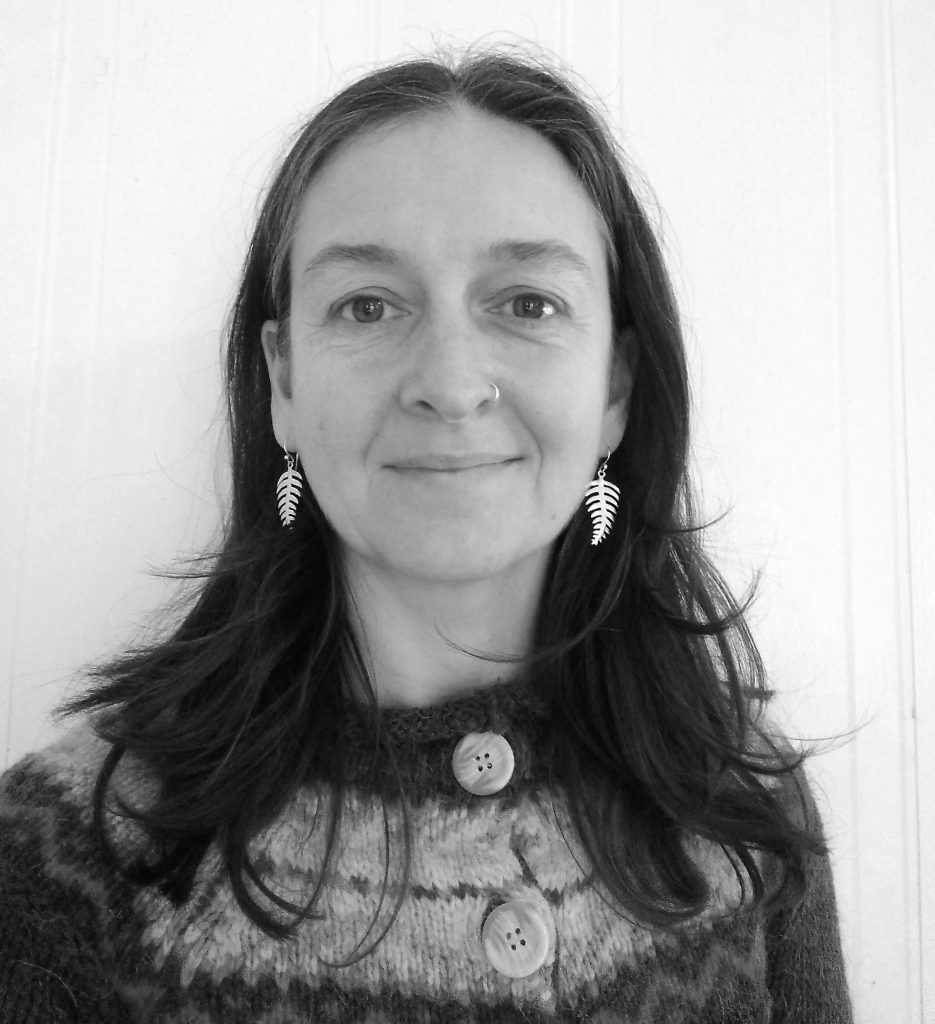 Ella began her career as a primary school teacher before undertaking an Environmental Science degree at the Open University. In 2020, Ella began working part-time as a graduate ecologist for Burton Reid Associates, a small ecological consultancy based in Buckfastleigh, Devon and has since been promoted to Professional Ecologist. In 2019, Ella started her own petition asking the local council to declare a climate emergency and develop an action plan to address the issue. The petition was successful, and Ella subsequently worked with local groups to hold the council to account on the promises it had made. Ella’s family is always looking for simple ways to reduce energy usage and waste and live more in tune with nature, and will soon not use any fossil fuels in their home.
Ella began her career as a primary school teacher before undertaking an Environmental Science degree at the Open University. In 2020, Ella began working part-time as a graduate ecologist for Burton Reid Associates, a small ecological consultancy based in Buckfastleigh, Devon and has since been promoted to Professional Ecologist. In 2019, Ella started her own petition asking the local council to declare a climate emergency and develop an action plan to address the issue. The petition was successful, and Ella subsequently worked with local groups to hold the council to account on the promises it had made. Ella’s family is always looking for simple ways to reduce energy usage and waste and live more in tune with nature, and will soon not use any fossil fuels in their home.
Tom Butterworth MCIEEM
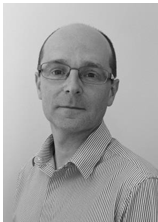 Tom is currently the Head of Ecology for WSP and a Director with extensive experience in natural capital and biodiversity assessments with over 24 years of experience working for wildlife. Tom has led the practical management of protected sites, developed local, regional, and national biodiversity strategies and policies, led programs of research, and managed the delivery of England’s biodiversity strategy. Tom has, alongside others, set up the UKBBF and developed the Nature Positive Business pledge, getting WSP to sign up to this pledge and increase its carbon commitments. Tom is keen on bringing together the corporate-level commitments on climate and biodiversity with those on the individual level, ensuring better support for biodiversity across the sector.
Tom is currently the Head of Ecology for WSP and a Director with extensive experience in natural capital and biodiversity assessments with over 24 years of experience working for wildlife. Tom has led the practical management of protected sites, developed local, regional, and national biodiversity strategies and policies, led programs of research, and managed the delivery of England’s biodiversity strategy. Tom has, alongside others, set up the UKBBF and developed the Nature Positive Business pledge, getting WSP to sign up to this pledge and increase its carbon commitments. Tom is keen on bringing together the corporate-level commitments on climate and biodiversity with those on the individual level, ensuring better support for biodiversity across the sector.
Julie Dewar CEnv MCIEEM
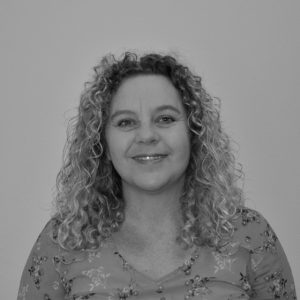
Julie is the Team Manager of Specialists within the City of Edinburgh Planning and Building Standards service. Julie has extensive experience within the planning sphere, and has a deep understanding of the importance and often changing relationship between planning and the natural environment, as well as the role that professions such as biodiversity and landscape architects will play in dealing with the climate and nature crisis through the planning process. Julie is keen on ensuring that the Scottish perspective on policy issues is considered, and will continue to engage in how positive effects for biodiversity are being measured and delivered across Scotland.
Suvi Harris MCIEEM
 Suvi is a Senior Environmental Project Manager at Scott Cawley with over 9 years of experience in environmental consultancy and over 13 years of experience in the environmental field, with a particular focus on catchment contamination. Suvi’s PhD focused on modelling contaminants in the marine and soil environment, and throughout her career, she has worked on developing environmental and ecological solutions for the engineering challenges posed in the field of water and wastewater. Suvi has led work across Ireland on a range of areas including, EIA, AA, Water Framework Directive Compliance Assessment, Surface Water Impact Assessment and Sustainability Appraisals. In her spare time, Suvi Volunteers for ReWild Wicklow, monitoring, protecting and enhancing native habitats across Wicklow to support biodiverse ecosystems of historical flora and fauna.
Suvi is a Senior Environmental Project Manager at Scott Cawley with over 9 years of experience in environmental consultancy and over 13 years of experience in the environmental field, with a particular focus on catchment contamination. Suvi’s PhD focused on modelling contaminants in the marine and soil environment, and throughout her career, she has worked on developing environmental and ecological solutions for the engineering challenges posed in the field of water and wastewater. Suvi has led work across Ireland on a range of areas including, EIA, AA, Water Framework Directive Compliance Assessment, Surface Water Impact Assessment and Sustainability Appraisals. In her spare time, Suvi Volunteers for ReWild Wicklow, monitoring, protecting and enhancing native habitats across Wicklow to support biodiverse ecosystems of historical flora and fauna.
Jo Rockingham MCIEEM
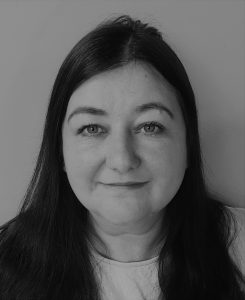 Jo is an Associate Director at Tetra Tech Europe, with 15 years experience as an ecological consultant. Prior to that, Jo worked for the Wildlife Trusts and as a countryside ranger, as well as undertaking a greenhouse gas emissions research project as part of her Master’s degree. Jo is passionate about climate change and in particular how ecologists can provide leadership and make a positive impact, both internally within their own organisations and externally by supporting and positively influencing businesses and the public. Jo has worked on many wind farm projects over the years and is currently working on a range of renewables and related projects, including proposed solar farms, single large wind turbines, Greener Grid Parks and Battery Energy Storage Systems, and leads the Tetra Tech ecology team’s Climate Change & Carbon Capture technical working group. Jo volunteers at her local primary school to help reduce their carbon footprint through re-use of school uniforms.
Jo is an Associate Director at Tetra Tech Europe, with 15 years experience as an ecological consultant. Prior to that, Jo worked for the Wildlife Trusts and as a countryside ranger, as well as undertaking a greenhouse gas emissions research project as part of her Master’s degree. Jo is passionate about climate change and in particular how ecologists can provide leadership and make a positive impact, both internally within their own organisations and externally by supporting and positively influencing businesses and the public. Jo has worked on many wind farm projects over the years and is currently working on a range of renewables and related projects, including proposed solar farms, single large wind turbines, Greener Grid Parks and Battery Energy Storage Systems, and leads the Tetra Tech ecology team’s Climate Change & Carbon Capture technical working group. Jo volunteers at her local primary school to help reduce their carbon footprint through re-use of school uniforms.
